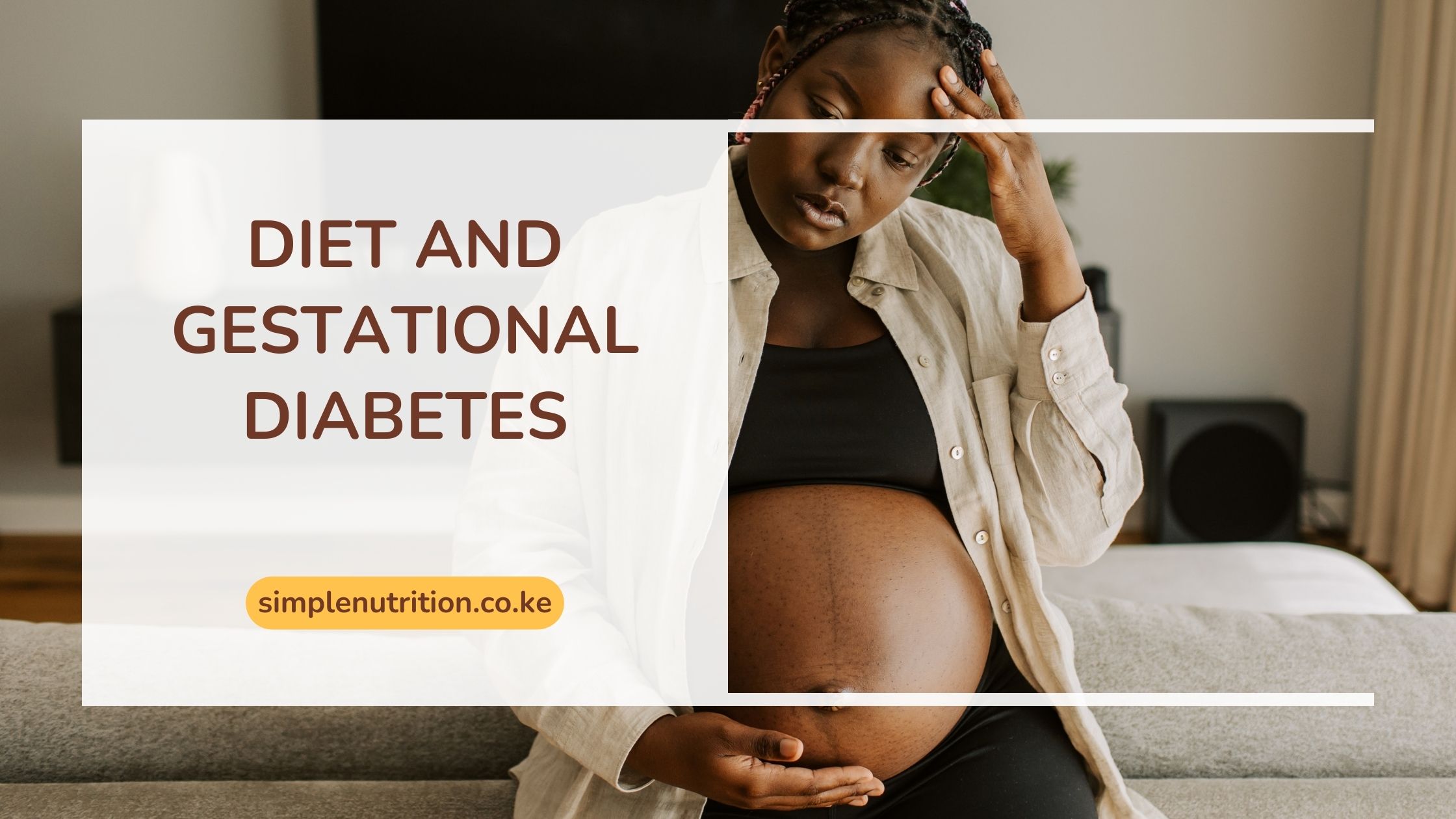Management of gestational diabetes involves following a specific diet plan. The main importance of the diet plan is to make sure blood glucose levels remain at normal ranges, making sure both the mother and child remain healthy.
The specific diet is meant to help meet all the nutrition needs of the baby and mother, without causing sudden sugar spikes.
Mindless eating, when you have gestational diabetes, can lead to really high blood glucose levels. Which is risky for both the mother and the baby. Moreover, just like any other form of diabetes, it increases your chances of getting complications related to diabetes, like heart disease, stroke, kidney failure…
What is gestational diabetes?
Gestational diabetes is always diagnosed in pregnancy. This is when the woman, had not had diabetes before. It happens because hormones made by the placenta affect the function of insulin. Insulin is a hormone that helps move glucose from the bloodstream to the body cells for energy, this is after you eat.
When insulin is insufficient, it may lead to high blood sugar levels. A condition that can affect both the mother and child.
What causes gestational diabetes?
While the exact cause is unknown, studies have linked it to hormonal changes that happen during pregnancy, that affect insulin function or lead to insulin resistance.
Other risk factors like;
- Obesity,
- Physical inactivity,
- Prediabetes,
- History of gestational diabetes in previous pregnancies,
- PCOs,
- A family history of diabetes may also lead to gestational diabetes.
Will diet help to manage gestational diabetes?
A healthy diet is very important in the management of gestational diabetes. The diet should be well balanced to provide all the nutrients the body requires and still maintain the blood sugar level at a normal range.
- Choosing carbohydrates with a lower glycemic index, like fibre-rich foods,
- Eating six times a day ( 3 main meals, and healthy snacks in between,
- Doing portion control will help reduce the risk of sudden spikes in blood sugar levels.
In addition, foods rich in iron, folate, and calcium, incorporating lean proteins and healthy fats will help keep both the mother and baby healthy.
If I go on a diet, will it affect my baby?
A healthy diet under the guidance of healthcare professionals, is generally beneficial for both the mother and the baby, especially if the mother has gestational diabetes.
A well-managed diet helps control blood sugar levels and supports overall health during pregnancy.
Avoiding extremes, such as extremely low-calorie diets, is important, as these can potentially affect fetal development. Important also is not to focus on weight loss, rather the focus should be on making sure the meals provide all necessary nutrients in the correct proportions.
Regular monitoring and communication with healthcare professionals are key to ensuring the well-being of both the mother and the child.
Will I then remain diabetic after delivery?
In many cases, gestational diabetes resolves after delivery. However, women who have had gestational diabetes are at an increased risk of developing type 2 diabetes later in life.
It’s important to continue monitoring blood sugar levels after childbirth and maintain a healthy lifestyle, including a balanced diet and regular physical activity, to reduce the risk of developing type 2 diabetes.
By making positive lifestyle choices, you can contribute to your long-term health and reduce the risk of diabetes recurrence.
Regular follow-up with healthcare professionals is crucial to monitor your health and address any concerns.
How often will I need to get my sugars checked?
The frequency of blood sugar checks during and after pregnancy can vary based on individual circumstances and healthcare provider recommendations.
Typically, if you have gestational diabetes, your healthcare team will guide you on how often to monitor your blood sugar levels.
During pregnancy, it’s common to check blood sugar levels multiple times a day, usually before and after meals.
After delivery, your healthcare provider will determine the appropriate schedule for postpartum monitoring.
This may involve periodic checks to assess whether blood sugar levels have returned to normal or to detect any signs of diabetes.
Will the baby be safe? If I have gestational diabetes?
When gestational diabetes is well-managed, the risk of complications for the baby, such as macrosomia (large birth weight), respiratory distress syndrome, and low blood sugar at birth, is minimized.
Regular prenatal check-ups, monitoring, and any necessary interventions recommended by your healthcare team contribute to a safer pregnancy and delivery.
It’s crucial to communicate openly with your healthcare provider, attend scheduled appointments, and follow their advice to ensure the best possible outcome for both you and your baby.
Sample meal plan for gestational diabetes.
A meal plan for someone with gestational diabetes would typically involve a balance of carbohydrates, proteins, and healthy fats.
However, it’s important to note that individual nutritional needs can vary, and it’s best to work with a registered dietitian or healthcare professional to create a personalized plan.
Here’s a general example:
Breakfast:
- Whole grain oatmeal with berries and a sprinkle of chia seeds.
- Scrambled eggs or Greek yoghurt for added protein.
Mid-Morning Snack:
- Handful of almonds, groundnuts or walnuts.
- Any fruit of choice.
Lunch:
- Grilled chicken is a good source of protein.
- Half plate variety of colourful vegetables.
- 1 cup brown rice as a source of complex carbohydrates.
Afternoon Snack:
- Yoghurt
- Whole grain crackers.
Dinner:
- Baked salmon or lean protein of choice.
- Roasted sweet potatoes and steamed broccoli.
Evening Snack (if needed):
- Greek yoghurt with a few fresh berries.
- A small handful of nuts.
Remember, portion control, choosing complex carbohydrates, and incorporating a variety of nutrient-dense foods are key principles.
Discover more from Simple Nutrition
Subscribe to get the latest posts to your email.



Well-written article. Thanks for sharing and supporting.
Promoting good health every chance I get
Great and good for you. I’m a strong believer that health is wealth.
Make it a great day!